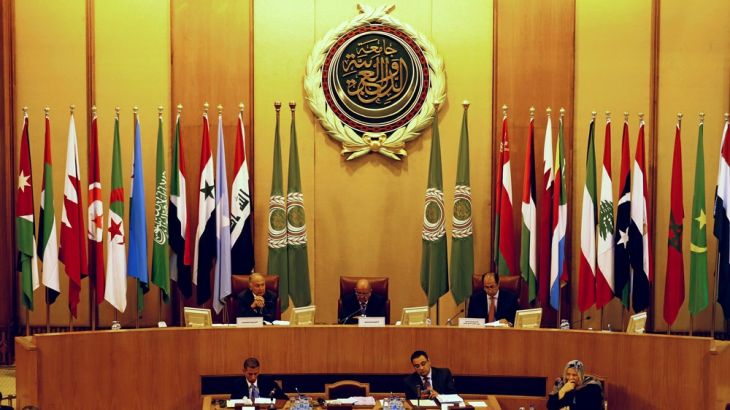Arab League to discuss Iranian ‘violations’
At Saudi Arabia’s request, Arab foreign ministers are holding an emergency meeting in Cairo.

Arab foreign ministers are holding an emergency meeting at the Arab League headquarters in Cairo, following Saudi Arabia’s request to discuss Iran’s “violations” and its role in “undermining Arab security and peace”.
The meeting in the Egyptian capital on Sunday comes amid escalated political tensions between Riyadh on the one hand, and Tehran and the Lebanese Hezbollah movement on the other.
Keep reading
list of 4 itemsHow important is Captagon in al-Assad’s return to the Arab fold?
Assad gets warm reception as Syria welcomed back into Arab League
Will Syria’s return to Arab League usher in new era of stability?
According to a report from the Reuters news agency, Lebanese Foreign Minister Gebran Bassil would not be present.
“A decision was taken that Lebanon would be presented by Antoine Azzam, the permanent representative to the Arab League,” a source from the ministry told Reuters.
Saudi is set to discuss “the act of aggression by the Houthi militias of Iran in Yemen” after Houthi rebels fired a ballistic missile towards Riyadh on November 4, according to a memorandum distributed by the league’s general secretariat, Ahmed Aboul-Gheit, to member states.
Bahrain has also accused Iran of being responsible for blowing up its oil pipelines.
“What Iran is doing is undermining security and peace, not only in the Arab region but throughout the world,” the memorandum stated.
|
|
Saad Hariri, Lebanon’s prime minister, announced his resignation from Riyadh on the same day that the Houthis fired the missile.
The move caused Lebanon’s top politicians to speculate that he was under some form of house arrest, despite his visit to Paris on Saturday, and has led to heightened tensions between Saudi Arabia and Lebanon.
Marwan Bishara, Al Jazeera’s senior political, said Saudi Arabia is trying to escalate Arab tensions with Tehran over what it perceives to be increasing Iranian influence and threat to regional security.
He said the meeting was “an attempt” by Riyadh to garner regional support at a time when “reports from the mainstream press in the US and Europe are signaling alarm in Western circles about the ‘reckleness’ of the Saidi leadership in the region, whether vis-a-vis Yemen, Qatar, Lebanon and Iran”.
Bishara noted, however, that the Arab countries “are divided, as usual”.
“There are a few, like Bahrain and the United Arab Emirates, that are behind Saudi Arabia. But Egypt, the host of Arab League, is not as enthusiastic as people think to support Saudi escalation against Iran at this point in time,” he said.
“While they might vote in favour of a watered-down resolution against Iran or putting Iran in notice, there is no sense that Egypt really today wants to come to some sort of regional conflict with Iran,” added Bishara.
“Other countries are not as enthusiastic as Saudi Arabia.”